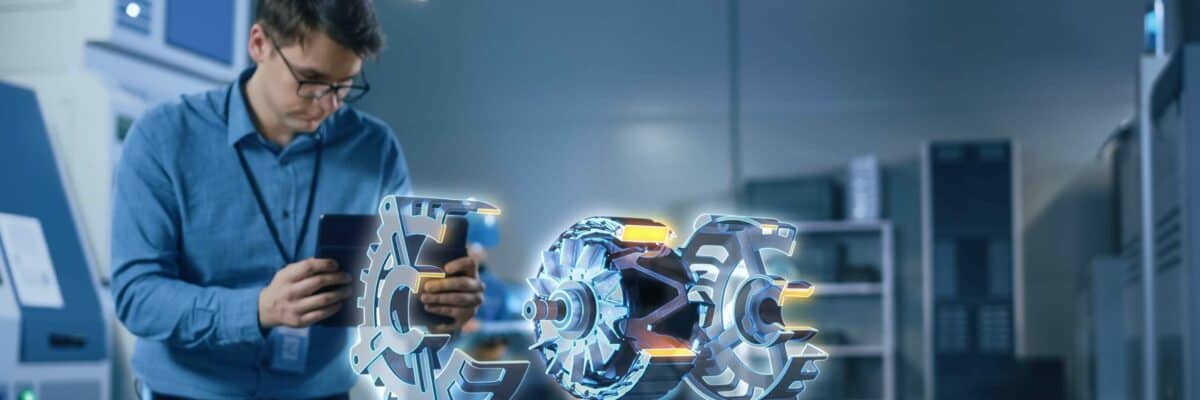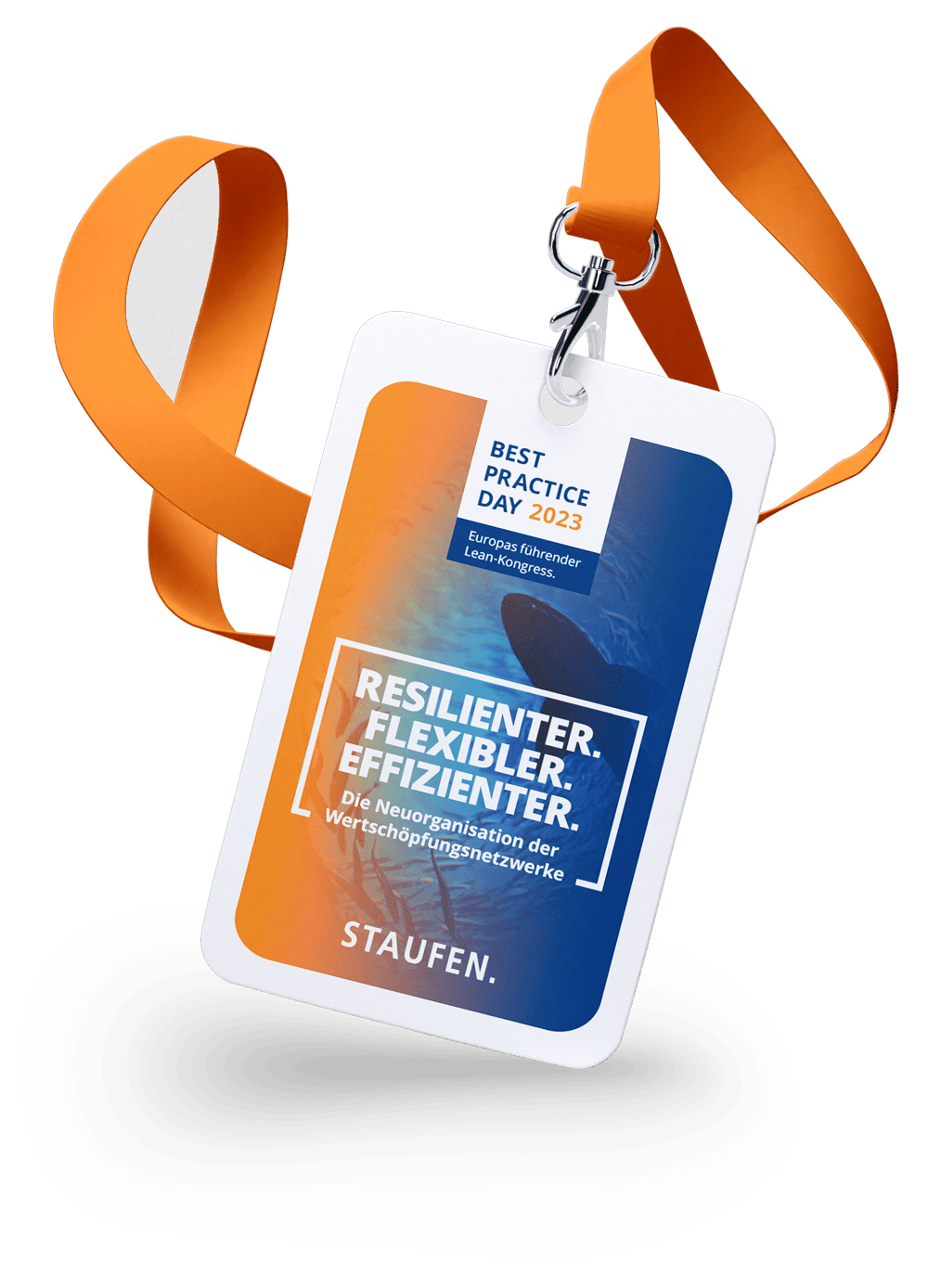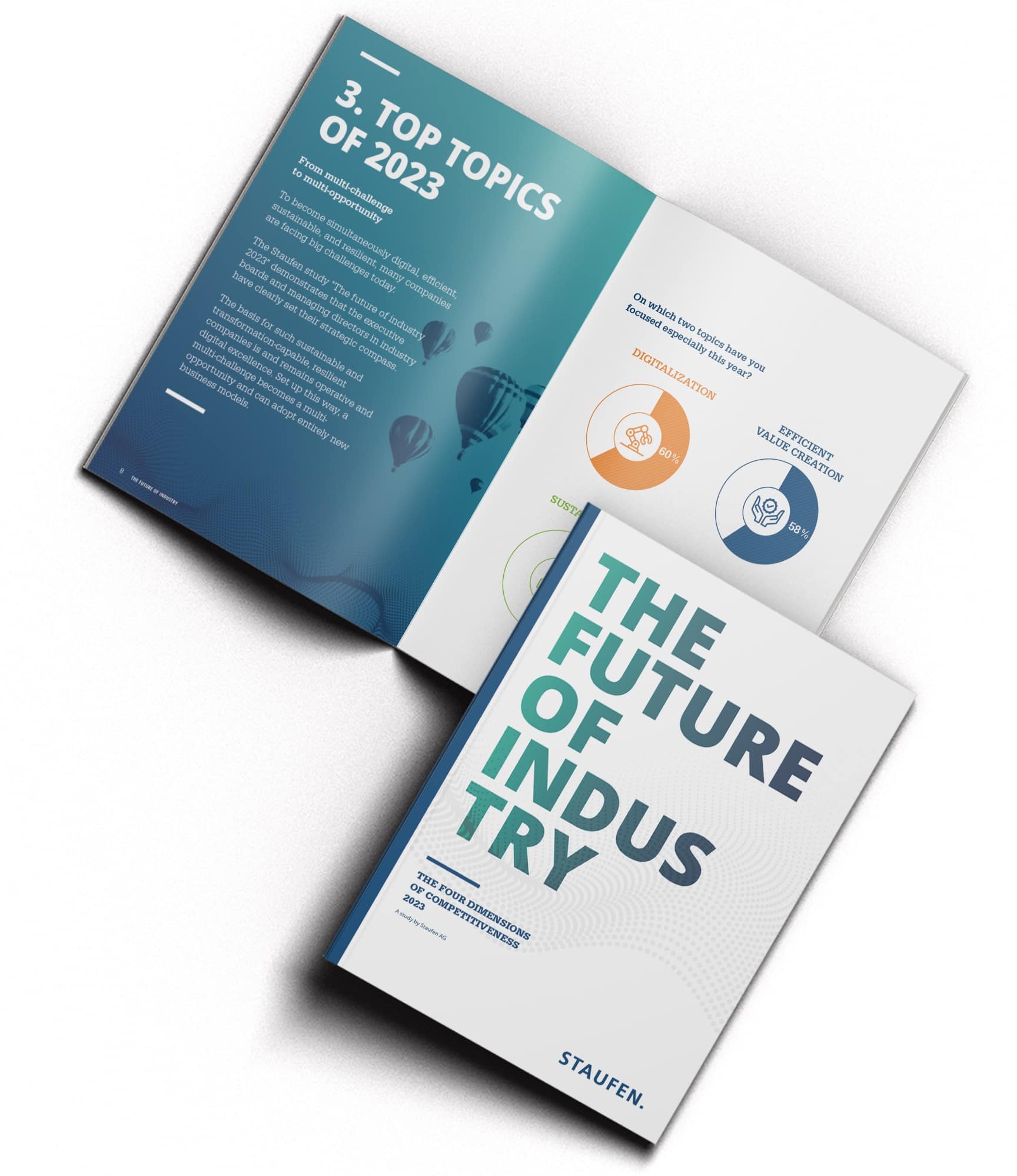
A dual-class digital society has established itself in industry: according to the current study “Future Industry 2023,” 49% of the companies surveyed are proceeding actively with digitalization. The rest are currently still stuck in individual projects or have yet to find true access to this topic. For the study, the consulting company Staufen surveyed more than 400 industrial companies from German-speaking Europe.
Smart factories with intelligent machines, efficient processes, autonomous transport vehicles, and service robots have been dominating the discussion around Industry 4.0 for years. Six out of ten companies have therefore put their own digitalization at the top of the agenda again this year. “When it comes to the actual implementation, there is a lot left to do in order to exploit the full potential of digitalization,” says Dr. Michael Feldmeth, who manages the Digital & Industry 4.0 practice unit at Staufen. “Many companies are still feeling their way along this topic with different, not always coordinated individual projects.”
Greatest digitalization potential in production and in the supply chain network
Nevertheless, 59% of companies are pushing ahead with digitalization projects despite the tense economic situation. Almost half (44%) have even started new projects. Most companies (86%) have promised themselves increased efficiency. Three-quarters (75%) also expect greater transparency in processes and in more than half of companies (57%), digitalization is also supposed to help reduce costs. In addition to production (62%), industry sees the greatest potential in optimizing the supply chain network (60%). “Frequently, it’s a question of the approach. All companies know that they must digitalize. However, many do not yet know how they can get the best from digitalization and therefore they begin with projects to increase efficiency,” says digitalization expert Feldmeth.
Exploiting new markets with alternative business models
For the Staufen consultants, this can only be the first step. “The greatest benefit of digitalization is in developing new business models. The pioneers of Industry 4.0 have already realized this and implemented the technology strategically.” However, only half of companies are advancing digitalization strategically. Nearly three-quarters of companies (73%) offer services with Industry 4.0 functionalities, for example in the area of predictive maintenance, but only 3% have already developed new business models on a digital basis. “In particular, individual digitalization projects help small and medium-sized companies come through the current crisis. But anyone who wants to be fit for the future in the long term needs alternative business models in order to be able to exploit new markets and sales potential,” says Michael Feldmeth.

Michael Feldmeth
Project Manager
STAUFEN.AG

Michael Feldmeth
Project ManagerSTAUFEN.AG
Michael Feldmeth has implemented various Lean projects in the automotive industry as well as in mechanical and plant engineering. His projects included the restructuring of the entire order processing. The focus of the projects was the optimization of the production processes as well as the associated administrative processes. Due to the production of cooling systems and special machines, he was able to achieve a significant increase in efficiency and flexibility of production by reorganizing the manufacturing according to Lean principles and by training the employees. Most recently, he worked at Robert Bosch GmbH in the Central Department for the Development and Coordination of the Bosch Productions System. He was responsible for the further development of the production system according to the future requirements of the manufacturing industry. Michael Feldmeth has been working for Staufen AG since 2014. Since 2019 he is employed as a Project Manager.
Read moreAbout the “Future Industry 2023” study
For the study, the consulting company Staufen AG surveyed a total of 401 companies in Germany, Austria, and Switzerland on the topics digitalization, efficient value creation, sustainability, and resilient networks. The survey was conducted in the spring of 2023.
Save the Date
BestPractice Day 2023: Top companies present the value creation networks and business models of the future
BMW, GEA, Siemens, and Trumpf are just a few of the numerous companies that will share their knowledge with participants at the BestPractice Day 2023 on June 27th in Darmstadt. Workshops on June 28th will also provide live insights into the topics of digitalization, lean, and green transformation. The central questions on both days: What makes companies capable of sustainable change and thus fit for the future? How do top companies deal with current challenges? What effects did they have and what can we learn from them?

This might also interest you

Digitalization and Industry 4.0
Virtually all companies are now dealing with the topic of digitalization. It has been becoming increasingly important for years, and those who want to keep pace are focusing on it. Frank Krüger, Senior Partner at Staufen AG and Head of the Processes and Digitalization Unit, talks about the connection between operational excellence and digitalization.
Read more
Digitalization & Industry 4.0
Intelligent Industry 4.0 production processes can be applied to accomplish a variety of objectives. These include achieving greater productivity and efficiency, fulfilling consumer specifications faster and more expediently, and developing brand-new industrial products and business models. Small and mid-sized companies often have a particular need for this kind of consulting and guidance.
Read more
Study: Future Industry
How the industry is positioning itself for the future! Our new study on the topics of digitalization, efficiency, sustainability and resilience.
Read more

